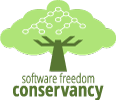Using services meshes and OpenTracing for observability in complex software systems
Who is this presentation for?
- Engineering practitioners working on distributed systems
Prerequisite knowledge
- An understanding of microservices in production (useful but not required)
What you'll learn
- Understand why end-to-end observability requires the same tracing system to be integrated with both the service mesh and the underlying microservices in order to propagate traces correctly
- Learn how a universal standard like OpenTracing greatly reduces the amount of code required while increasing the number of tracing options available
Description
Service mesh technology facilitates the discovery, interconnection, and authentication of microservices. While users are beginning to adopt them in large numbers as part of the container ecosystem, it’s still unclear to many people how they interact with the rest of the operations stack.
Ben Sigelman explains how service mesh technology can be used in conjunction with distributed tracing to provide a complete picture of a software system—a topic that is very relevant for developers and DevOps engineers navigating the explosion of microservices in their software systems. You’ll see how straightforward it is to use a service mesh to measure peer performance and why the behavior of multihop transactions in a microservices deployment requires distributed tracing.
End-to-end observability requires the same tracing system to be integrated with both the service mesh and the underlying microservices in order to propagate traces correctly. A universal standard such as OpenTracing greatly reduces the amount of code required while increasing the number of tracing options available. Ben covers why tracing is important, how it interacts with the service mesh layer, and how OpenTracing enables end-to-end observability in an elegant and portable manner. He also shares recommendations for integrating these technologies in microservices deployments.

Ben Sigelman
LightStep
Ben Sigelman is the cofounder and CEO of LightStep, where he’s building reliability management for modern systems. An expert in distributed tracing, Ben is the coauthor of the OpenTracing standard, a project within the Linux Foundation’s Cloud Native Computing Foundation (CNCF). Previously, he built Dapper, Google’s production distributed systems tracing infrastructure, and Monarch, Google’s fleet-wide time series collection, storage, analysis, and alerting system. Ben holds a BSc in mathematics and computer science from Brown University.
Sponsorship Opportunities
For exhibition and sponsorship opportunities, email oscon@oreilly.com
Partner Opportunities
For information on trade opportunities with O'Reilly conferences, email partners@oreilly.com
Contact Us
View a complete list of OSCON contacts
©2018, O'Reilly Media, Inc. • (800) 889-8969 or (707) 827-7019 • Monday-Friday 7:30am-5pm PT • All trademarks and registered trademarks appearing on oreilly.com are the property of their respective owners. • confreg@oreilly.com




























